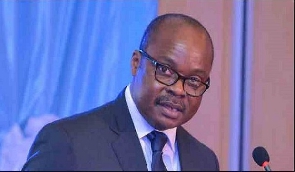 Governor of the Bank of Ghana, Dr Ernest Addison
Governor of the Bank of Ghana, Dr Ernest Addison
The Bank of Ghana has released a new directive – Fit and Proper Persons Directive 2019 – which sets out the minimum assessment criteria for its approval of persons to serve as significant shareholders, directors and key management personnel in the commercial banks, savings and loans companies and deposit-taking finance houses regulated by the central bank.
A similar directive will follow in due course which sets the assessment criteria and guidelines for such positions in rural and community banks, micro-finance institutions and non-deposit taking institutions.
The new directive, released yesterday, replaces the Fit and Proper Directive 2018, being far more comprehensive, and importantly, far more stringent.
However, combined with its strictness, it gives the BoG full discretionary powers to interprete its provisions, which means there is plenty of scope for controversy going forward, over whom the central bank approves of and who it does not, especially where people with open political affiliations are concerned. Crucially however, the central bank is backed by several overlapping laws that empower it to discern who is fit and proper.
The directive will be crucial to ensuring that the quality of corporate governance – and resultant risk management – is high enough to avoid many if not most of the mistakes that led to the recent banking sector melt down that saw nine indigenous banks liquidated within the space of one and a half years.
It aims to prevent people with lack of requisite expertise and experience, with lack of personal or professional integrity, or with conflict of interest, from occupying positions of authority in the financial institutions regulated by the BoG. To achieve this, regulated institutions are to conduct assessments using the BoG ‘s laid down criteria prior to the appointment of such persons and at least annually thereafter, or where the institution becomes aware of information that may materially compromise a person’s fitness and propriety.